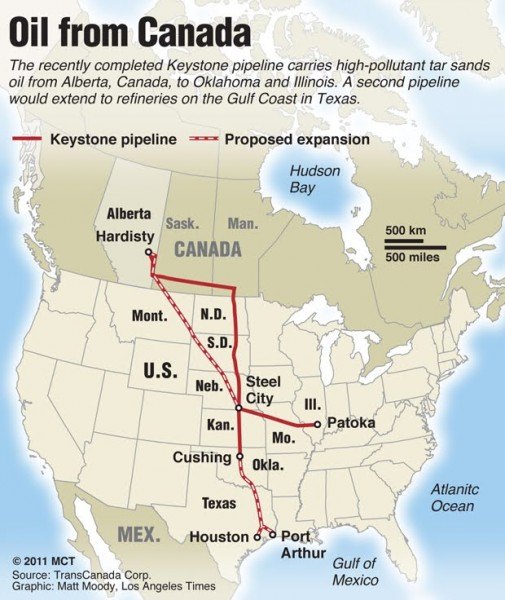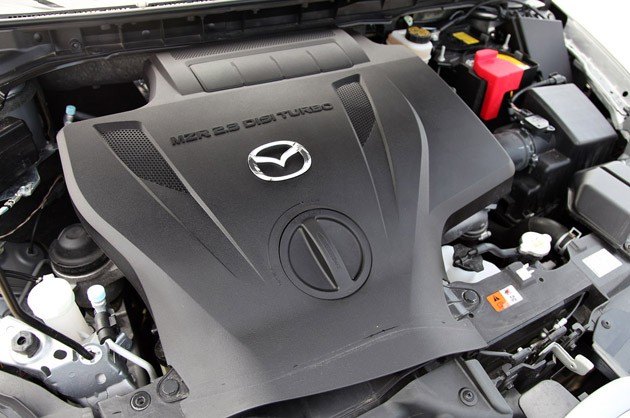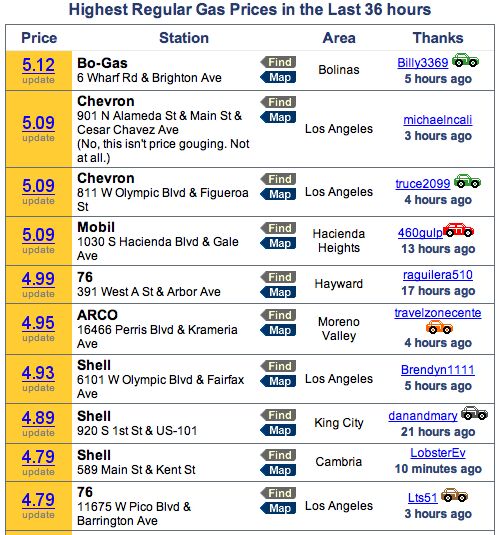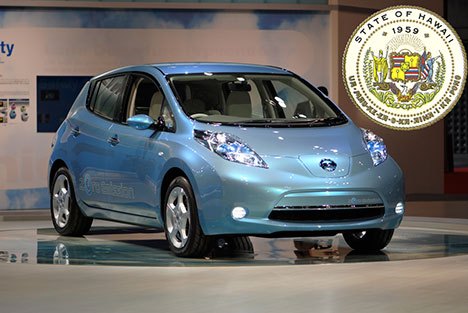#Oil
Piston Slap: Less Slap, More (oil) Control
Pete writes:
Hey Sajeev, I got one for you.
Several engines nowadays are set up to operate on half their cylinders under light-load conditions. Would the design considerations for piston rings vary from those normally used for such cylinders that are only used part-time? The question arises in the context of a 2009 V6 Accord that is currently in the Honda dealer’s shop to have the piston rings replaced at the manufacturer’s expense to cure a continual oil consumption and spark plug fouling problem.
Keystone Vote Looms Amid Iraq Implosion
Global oil prices are on the rise as the crisis in Iraq contributes to market instability. Large chunks of Iraq’s oil production infrastructure have fallen under militant control, leading to a sharp drop in output. Meanwhile, Canadian officials are upset with the Obama administration’s handling of the Keystone pipeline. They contend that the inaction on Keystone is keeping millions of barrels of Alberta crude from reaching more profitable markets.
Chrysler Vans Sitting Idle As Oil Boom Robs Rail Capacity
Several hundred Chrysler minivans are stuck indefinitely on a piece of prime Detroit real estate, unable to be transported across America. The reason? The fossil fuel boom in Canada and the United States is hogging much of the available rail capacity needed to transport the vans.
Piston Slap: Inject Fuel Directly Into…Oil?
Evan writes:
Sajeev,
I have a piston slap question for a friend at work. She drives an ’11 Mazda CX-7 2.3. For over a year she has had an issue with fuel in the oil. Enough that the oil level has been as much as 1″ above the full mark on the dipstick as a result (oil level was checked after service, and frequently between services). This is noticed within weeks of service/oil change.
Piston Slap: A Fear of Falling?
Michael writes:
I am a longtime TTAC reader, but do not comment very often. However, I have a question that perhaps you and the B&B can help me with. I am the owner of a 2011 Kia Soul +, 14,XXX miles. Been a great vehicle so far.
Peak Oil, Meet Plateauing Demand
TTAC is no stranger to the topic of Peak Oil, but the theory has fallen by the wayside with the recent explosion in unconventional oil and gas. A study by the British think tank Chatham House argues that the biggest issue facing oil and gas producers in the coming century isn’t Peak Oil, but Peak Demand ( summary here).
Will Natural Gas Prevent Us From Reaching A Better Place?
A brief piece in the Wall Street Journal’s “Dealbook” discussed the potential of natural gas powered vehicles, largely as a way to stop falling prices for natural gas.
One hope for many natural gas producers reeling from collapsing prices is wider adoption of natural-gas-powered cars.
The biggest hurdle so far: lack of infrastructure to refuel them.
But Steven Mueller, CEO of Southwestern Energy, says if 10% of passenger cars were powered by natural gas, gasoline prices would fall by $1.60/gallon and gas producers would get 4 billion cubic feet/day in demand.
Piston Slap: Seeing the Forester for the Trees?
Jim writes:
Hi,
I hope you are well. I have several questions regarding my 2011 Forester (5 speed):
a) I drive 8 to 10K annually and change the 5w-20 every 6 months. Is this sufficient?
b) Subaru keeps sending me extended warranty offers. This tells me that I likely don’t need it. What do you think? My favorite moment when purchasing the Forester: The F & I rep mentioning “If people want to drive around without the extended warranty, it is not my problem.”
Anwyl: Should We Be Preparing For The Next Gas Price… Collapse?
The big news around here yesterday came from Bertel’s interview with Toyota’s Chief Engineer, in which it became clear that Toyota takes the developing world’s growing demand for oil very seriously. With global demand already outstripping supply, the giant automaker’s embrace of a petroleum-constrained business model seems to make it clear that gas prices will play a significant role in the future. But markets are, by their natures, both difficult to predict, and shaped by predictions. And Edmunds CEO Jeremy Anwyl reckons that, although gas prices are high and could well go up in the short term, fears of a runaway gap between supply and demand may not materialize over the longer term. He writes:
Here’s the twist: As I said, the consensus belief (or story) on future oil prices is that they will be higher. And short term, this may be the case if and/or when the global economy recovers and/or demand grows in emerging markets.
But there is a longer-term story as well. This story suggests that peak oil may be nigh and the future holds shortages and sharply higher prices. Buying into this story, companies, acting individually, will see profit in expanding exploration, developing sophisticated new extraction technologies, etc.
The aggregate result of all these individual activities is that the future supply of oil will improve and prices will actually drop.
In fact, we have seen this paradox play out before. Through the Seventies, we were first shocked by rapid price increases and then conditioned to believe they would continue. And, of course, oil prices collapsed in the Eighties.
In The Battle For The Post-Oil Auto, Big Investors Are Shooting The Moon
As Bertel pointed out earlier today, peak oil is here: the graph above is not from some fly-by-night EV firm, but Toyota, an auto industry giant. What years of environmental and security arguments failed to communicate, economics is now explaining with little difficulty. Namely, that demand for oil is growing faster than supply, forcing developed economies to look beyond oil for future growth. And, as you might expect from a conservative player in a conservative industry, Toyota argues that the solution to this growing disconnect is a portfolio of drivetrain technologies. But what if, instead of trying to adapt an existing business model to the new oil reality, you built a new business model from the ground up? That’s exactly what Project Better Place is trying to do, and the contrast between its approach and that of Toyota is fascinating to anyone interested in the future of the automobile.
Will The Leaf Save Hawaii From Oil Dependency? Ho Brah ... Smokin' Da Kine?
Equal time: While Prez. Obama test-sat the Volt’s European sibling, the Ampera, in Lisbon, Nissan had its own celebrity test driver for the Leaf EV. “John Roos, U.S. ambassador to Japan, test-drove Nissan’s “Leaf” electric vehicle in Yokohama one afternoon in mid-November, just before the APEC summit got under way,” reports The Nikkei [sub]. Then the Ambassador deeply inserted his foot in his mouth. He said he was particularly intrigued by the way the Leaf was able to charge its battery with solar power, a feat he saw at a “smart-city” exhibition sponsored by the Yokohama city government. Roos then asked officials running the demonstration whether the technology could help reduce oil dependence in Hawaii. Oops, wrong question.
Ask The Best And Brightest: Can We Talk About Dexos1 And API Testing Standards?
We smell a trademark fight
This Autoweek article gave me a college flashback: when UT Austin’s Petroleum Engineers offered me a scholarship, but the Mechanical Engineers said no dice. Mostly because high tech, high mileage oil talk is rather boring. Much like discussing a cutting edge, long-life coolant before the Dex-Cool fiasco. So let’s open a can of worms for the Best and Brightest, and hit the high points of General Motor’s Dexos1, a somewhat revolutionary engine oil with a distinct lack of testing from the American Petroleum Institute. As per Autoweek, matters stand like this:
Yummy: Algae In Your Tank, Cooking Oil In Your Tires
The conversion of vegetables into car fuel continues. In Japan, the Agriculture Ministry teams up with Toyota, Denso, the Chuo university in Tokyo, the Kyoto university and others with the goal of producing fuel from produce. From algae, to be exact. Are algae food? In certain parts of the world, they are. As I’m in Tokyo, dried algae are in the snack tray next to the computer, and they begin to infest the keyboard. The green stuff that wraps sushi is dried and pressed algae.
Crude Oil And Lazy Workers: Details About Chavez's Threat To Oust Toyota
The Christmas season would be a reason to be merry, would it not be for Hugo Chavez. More details about his expropriation threats emerge. Turns out, Chavez did not just threaten to kick out Toyota for being lackadaisical in the production of “rustic” vehicles.
“President Hugo Chavez told foreign automakers Wednesday to share their technology with local businesses or they will be told to leave the country,” writes the Boston Globe. Chavez gave the ultimatum in wholesale fashion to Ford, General Motors, Toyota and Fiat. Implied, the ultimatum is also meant for Fiat-controlled Chrysler, for Mitsubishi, Mack and Fiat-owned Iveco. All of the above have production facilities in Venezuela. All are at risk of instant deportation.




























Recent Comments